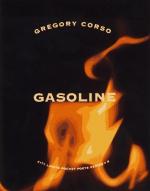|
This section contains 5,902 words (approx. 20 pages at 300 words per page) |

|
Gasoline is the primary product made from petroleum. There are a number of distinct classes or grades of gasoline. Straight-run gasoline is that part of the gasoline pool obtained purely through distillation of crude oil. The major portion of the gasoline used in automotive and aviation is cracked gasoline obtained through the thermal or catalytic cracking of the heavier oil fractions (e.g., gas oil). A wide variety of gasoline types are made by mixing straight-run gasoline, cracked gasoline, reformed and synthesized gasolines, and additives.
Motor fuels account for about one-quarter of all energy use in the United States. The energy content of gasoline varies seasonally. The average energy content of regular gasoline stands at 114,000 Btu/gal in the summer and about 112,500 Btu/gal in the winter. The energy content of conventional gasolines also varies widely from batch to batch and station to station...
|
This section contains 5,902 words (approx. 20 pages at 300 words per page) |

|


